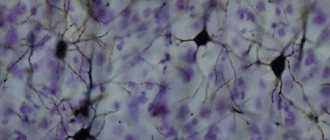The economic crisis, telephone and real terrorism, national conflicts, the lack of an image of a stable future - all these factors increase the feeling of anxiety of a modern person. Worrying about your future is a normal human reaction to some unpredictability of life.
Some people become stuck in this state, which negatively affects their quality of life. Increased anxiety not only prevents you from enjoying the small pleasures of life (the smell and taste of coffee in the morning, communication with loved ones, etc.), but also reduces the body’s immunity. Therefore, more and more often they have a question: “How to overcome anxiety and fear?”
How to get rid of fear?
The only way to loosen the tenacious grip of horror and fear is to take care of insurance, backup options or workarounds, selected individually for each situation.
When you cannot find such insurance, you will have to come to terms with anxiety. Don’t beg yourself or tell yourself to stop being afraid. It is pointless. Fighting fear will lead to new losses of energy and will only increase the power of excess potential even more.
The best option : act without trying to fight the fear. Despite the panic, carry out your usual actions as best you can.
Scared to speak in public? Amazing. Worry and worry sincerely, with complete dedication, to the point of insanity.
This step alone is often enough to make fear evaporate on its own because it allows you to conserve significant amounts of energy that might otherwise be wasted fighting fear and anxiety.
Treatment of phobias
The most common way to treat phobias is to gradually bring the patient closer to the object of his phobia in combination with relaxation techniques. This method is called systematic desensitization. This method is based on influencing and working with physiological and emotional reactions with the goal of reducing the feeling of fear.
For example, a patient suffers from herpetophobia – fear of snakes. First, the therapist will begin to talk with the patient about the object of his phobias—snakes. Next, the client looks at images of snakes, watches videos of them, and plays with a toy snake. Eventually, the patient will interact directly with the live snake. If during such therapy the patient experiences attacks of uncontrollable fear, then he should use relaxation techniques, special “thought stopping” techniques.
This treatment method is very effective, but it is also potentially very dangerous. That is why it can only be used under the guidance of a specialized psychotherapist.
How to get rid of anxiety and worry?
Compared to fear, worry and anxiety do not form such a powerful excess potential, and therefore the means of getting rid of them are much more mundane.
The cause of anxiety or mental restlessness is the expectation of the unknown. To overcome this overwhelming feeling, sometimes it is enough to simply remind yourself of the natural realization of fears and worst expectations.
It is best to direct the focus of attention to some meaningful activity, the type of which does not matter. Anxiety potentials are perfectly neutralized in action. Inactivity, on the contrary, will only increase anxiety or worry.
An effective tool for reducing the significance of circumstances is the principle of coordination of intentions. Its essence is to take everything that happens for granted. Don't try to predict the course of events. Let go of the situation and give it the opportunity to develop according to its own rules.
With a conscious movement along the flow of options, circumstances will miraculously turn out to be the best.
The world around you does not benefit from your suffering, but it doesn’t care about your well-being either. It’s just that much less energy is spent on maintaining your well-being.
It is not profitable for nature to waste energy. Any trouble is fraught with excessive energy expenditure. The state of well-being does not require such expenses.
An overly active mind, instead of moving along the path of least resistance, creates problems for itself, forcing you to row against the current and overcome the obstacles it has erected. This is the effect of the law of conservation of energy.
Having mastered the principle of coordination literally, you should not immediately bang your head against the wall or stick your fingers into a socket, saying that everything is going as it should. Its use, however, should not obscure common sense and an adequate perception of reality.
It may be more convenient for you to read us in Telegram or Yandex.Zen, join us!
Add a comment Cancel reply
Where do irrational fear and causeless anxiety come from?
Psychologist Svtlana Ridzel answers First of all, you need to figure out what exactly your anxiety or fear . Is it an acute attack of fear, which is manifested by rapid heartbeat, difficulty breathing, muscle tension, possibly dizziness, lasting from 10 minutes to half an hour? Or are they constant background anxious thoughts about various aspects of your life, which can be combined with the question “What if ...?”: “What if I get fired tomorrow and I don’t have money to pay the rent? What if my husband had an accident? What if I’m sick with something serious and don’t know about it?”
In the first case, we are dealing with panic attacks - essentially, an “erroneous” reaction of our internal security system. Fear is a normal automatic reaction that prepares us to flee or fight in a dangerous situation (“fight-or-flight” response). And we, of course, need it. But sometimes it works when there is no danger. Like a car alarm, which is needed to warn the owner about an attempted theft, but can be triggered by heavy rain or a chestnut falling on the roof. And panic attacks become a problem when a person gets scared of them and evaluates them as a danger. For example, the frequent “beat” of the heart, which accelerates so that more oxygen gets into the muscles so that the person can quickly escape, causes frightening thoughts “I’m having a heart attack,” which fuels the next round of panic. The comparison with a car alarm is not without reason: just as the activation of an alarm is unpleasant for the human ear, but does not harm the car at all, so an attack of fear is unpleasant for a person, but not dangerous.
In the second case, we are dealing with the anxiety of the unknown and an attempt to “curb” it through reflection. But the catch is that rumination can be “helpful” (and helps you move on to the right actions) and excessive, which can take a lot of time, seriously impair quality of life and damage relationships. Our goal is not to make anxiety go away, but to learn to distinguish “helpful” experiences from “unhelpful” ones and change our habitual way of thinking and acting.
We recommend watching: Stress as a growth factor.
What makes a person prone to anxiety? First of all, biology. We are born with a certain type of nervous system, and in some people it is more sensitive to signals of potential danger. The family in which we grew up also has an influence: perhaps someone close to you had a “habit of worry,” and you learned this pattern of behavior as a child. The general atmosphere in the family also influences - for example, someone may not have experience in supporting and protecting adults in difficult moments, or the parent had problems with alcohol and/or anger, and the child grew up with a sense of danger and unpredictability of the world around them. A similar influence can be exerted by overprotection on the part of parents who did not support the child’s independence (“I will do everything myself, you won’t succeed”), and by adulthood he has no experience in coping with problems.
How to help yourself? First, examine your anxiety. What triggers it and what fuels it? Perhaps you have the opinion that constantly asking yourself endless questions “what if...” is useful (prepares you for unpredictable situations) or is a manifestation of love and care for your loved one (“what if something happened to them? !"). In the case of panic attacks, fear can be fueled by a lack of understanding of what is happening and catastrophic interpretations (“I'm going to faint”). Second, reduce your vulnerability to anxiety (and other strong emotions). I think you have repeatedly noticed how our emotional state is affected by lack of sleep, illness or the feeling of hunger if you forgot to eat.
The acronym CARE can help here:
Z = Health. Treat illnesses in a timely manner and take medications prescribed by your doctor.
A = Activity. Try to be physically active every day. It's good if you can devote 20 minutes a day to exercise.
B = Be moderate. Alcohol and drugs, as well as certain foods, can increase our vulnerability to negative emotions and/or anxiety.
O = Rest (physical). Try to sleep 7-9 hours a night, enough to feel good.
TA - Plate of food (regularly) Don't eat too much or too little. Both overeating and undereating affect our sense of self and mental state.
Don't eat too much or too little. Both overeating and undereating affect our sense of self and mental state.
Categories
- Doors and goals (10)
- Soul and Mind (13)
- Induced transition (6)
- Coordination (7)
- Pendulums (2)
- Model options (13)
- Intent (8)
- Transurfing practice (18)
- Balance (13)
- Slides (8)
- Reality control (19)
- Fraying (11)
- Energy (8)
Worst case scenario
In overcoming fear, working through the question “how to overcome the fear of the unknown?” That is, in this case, you should think about the topic: what will happen if... Usually such reasoning lifts the veil of secrecy and it becomes clear that the outcome is, in principle, not dangerous. Often people think that the result will be scary. But with the help of this exercise, using a clear example, it gradually becomes clear that the problem disappears.
If it turns out that the unpleasant sensations persist, then we should think about what the inner voice is telling us. Therefore, if intuition really saved you from an unfortunate event, then this is simply wonderful. In such cases, you need to rejoice at your own sensitivity and thank it for your salvation.
What if a person is afraid to live?
You should rejoice at what is happening and perceive it from a positive point of view. Even if situations develop unfavorably, they should be perceived as a test. It's better to view them as lessons. After all, a person is born in order to become better, to learn something.
And those individuals who are afraid to leave the house in the morning will most likely wake up in their declining years. They will realize that their whole life has passed by and nothing has been done. And to avoid such a turn, you should think about the questions: is there any point in experiencing fear of life? How to overcome it?











